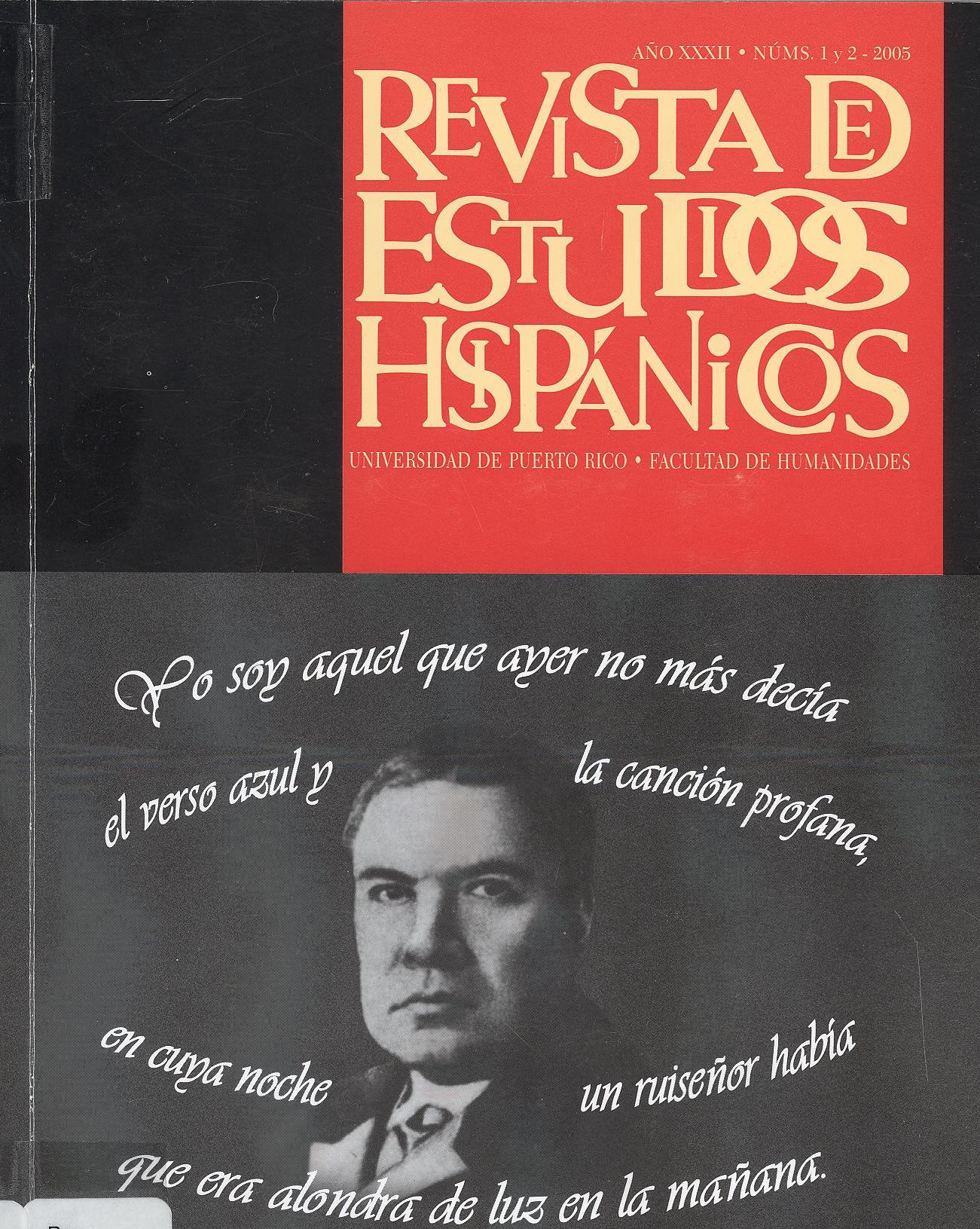Abstract
This essay offers a metapoetical reading of the topic of the nostos or homecoming within "modernista" and "posmodernista" poetry. In Urbina's "La elegía del retorno", as well as in López Velarde's "El retorno maléfico," and in Salomón de la Selva's "La balada del retorno," the motif of the return to the homeland constitutes a valid point of departure for a new definition of the role that poets and poetry can play in the modern world. In contrast to the Romantic vates and its incarnation in Darío's poem "Retorno" from Intermezzos tropicales, the "posmodernista" poet no longer appears as a visionary capable of limning in his verses the soul of the universe and the meaning of the world, but rather as an individual voice without prophetic faculties or powers, whose subjectivity often tends to efface itself in the text. Correspondingly, for the "posmodernista" poets, the epistemological possibilities of poetry are much more modest than for the "modernistas." The "posmodernistas" are committed to inhabiting the disenchanted, opaque world of modernity, and no longer seek to transcend the materiality of such a world in the Romantic and Platonic sense. On the other hand, neither López Velarde, nor Urbina, nor even Selva, envision a complete rupture with the aesthetic principles of Darío's poetry, or, by extension, with "modernismo." In all three poets, the nostalgic desire to return to that utopian, mythical realm of harmony and certitude lives on, an ideal space in which, as Darío expressed it, the heartbeat of the universe would correspond to the rhythmic cadence of the poem.This work is licensed under a Creative Commons Attribution-NonCommercial 4.0 International License.
Downloads
Download data is not yet available.

